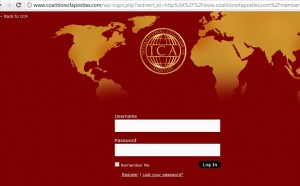I posted a piece at Crosswalk this afternoon titled Dominionism? What Dominionism? Here is the intro:
Some in the Christian Right have a memory problem. If I was diagnosing it, I would call it amnesia or maybe denial. They have forgotten who they are and from whence they came.
Christian reconstructionist Gary North has no such amnesia. He has been a fellow traveler with the Christian Right since the early days. In 2007, North wrote:
As a swing vote, the Christian Right can sometimes affect the outcome of the well-orchestrated, thoroughly entertaining Punch and Judy show that Americans call national politics. Prior to 1976, when Jimmy Carter openly campaigned as a Christian — the first Presidential candidate to do so since William Jennings Bryan — the Christian Right did not exist. I say this as a minor player in the construction of the Christian Right.
“I was able to wheedle my way into the speaker’s line-up at the three-day public meeting at which the Christian Right came into existence, the National Affairs Briefing Conference, held in Dallas in late summer, 1980. The Establishment did not note its existence, and its historians still don’t, but that was where Ronald Reagan told 13,000 new converts to politics, “You can’t endorse me, but I endorse you.” Those words served as a kind of political baptismal formula — infant baptism, I might add: babes in the woods.”
Those current Christian Right pundits who say that dominionism (various forms of the belief that Christianity and biblical law should form the basis for civil laws which apply to everyone) doesn’t exist are either unaware of their heritage or have selective memory. Reconstructionists (they believe Old Testament law should be the law of the land for all) have been on board in various ways all along, especially as a part of the move toward Christian schools and home schooling.
It seems clear to me that reconstructionists have continued to seek their beliefs and have some organizations within the mainstream of the Christian Right now (e.g., American Vision, Vision Forum, and Exodus Mandate). I don’t think the death penalty for blasphemy is coming back anytime soon but I am concerned about restrictions of freedoms of minorities given the influence of Bryan Fischer and David Barton.
The other issue for me is the erosion of the ability to dialogue with people of various viewpoints. The dominionists see their position as dictated by God. Thus, in a policy discussion, the dominionist can’t give up ground since it is holy. Opponents are not just incorrect, they are evil or as I quote in my article, one of the “enemies of God.” Who makes political deals with an enemy of God?
